
Tralee: Where Tradition Meets Tranquility
Nestled in the heart of County Kerry, Tralee is a charming town that beautifully blends history, culture, and natural beauty. Known for its vibrant festivals, picturesque landscapes, and warm hospitality, Tralee offers an ideal escape for tourists seeking both relaxation and adventure. The town's rich history is evident in its well-preserved landmarks and museums. The Kerry County Museum provides a fascinating journey through time, showcasing artifacts and stories from the region's past. Meanwhile, the iconic Blennerville Windmill, just a short walk from the town center, offers stunning views of the surrounding countryside and a glimpse into Ireland's industrial heritage. Nature lovers will be captivated by Tralee's scenic offerings. The Tralee Bay Wetlands and Nature Reserve is a haven for bird watchers and outdoor enthusiasts, featuring walking trails, bird hides, and a tranquil lake. For a more adventurous outing, the nearby Slieve Mish Mountains offer hiking trails with breathtaking vistas of the Atlantic Ocean and the Dingle Peninsula. Tralee is also famous for its Rose of Tralee International Festival, a celebration of Irish culture and heritage that attracts visitors from all over the world. This annual event, held in August, features a parade, street entertainment, and the crowning of the Rose of Tralee. Beyond the festival, the town's lively pubs and restaurants serve up delicious local cuisine and traditional Irish music, ensuring a memorable experience for all visitors.
Local tips in Tralee
- Visit the Kerry County Museum early in the day to avoid crowds and get the best experience.
- For stunning views, take a walk up to the Blennerville Windmill and explore the surrounding area.
- Pack comfortable walking shoes for exploring the Tralee Bay Wetlands and nature trails.
- If visiting in August, book accommodations well in advance for the Rose of Tralee International Festival.
- Try the local seafood dishes at one of the town's renowned restaurants.
Tralee: Where Tradition Meets Tranquility
Nestled in the heart of County Kerry, Tralee is a charming town that beautifully blends history, culture, and natural beauty. Known for its vibrant festivals, picturesque landscapes, and warm hospitality, Tralee offers an ideal escape for tourists seeking both relaxation and adventure. The town's rich history is evident in its well-preserved landmarks and museums. The Kerry County Museum provides a fascinating journey through time, showcasing artifacts and stories from the region's past. Meanwhile, the iconic Blennerville Windmill, just a short walk from the town center, offers stunning views of the surrounding countryside and a glimpse into Ireland's industrial heritage. Nature lovers will be captivated by Tralee's scenic offerings. The Tralee Bay Wetlands and Nature Reserve is a haven for bird watchers and outdoor enthusiasts, featuring walking trails, bird hides, and a tranquil lake. For a more adventurous outing, the nearby Slieve Mish Mountains offer hiking trails with breathtaking vistas of the Atlantic Ocean and the Dingle Peninsula. Tralee is also famous for its Rose of Tralee International Festival, a celebration of Irish culture and heritage that attracts visitors from all over the world. This annual event, held in August, features a parade, street entertainment, and the crowning of the Rose of Tralee. Beyond the festival, the town's lively pubs and restaurants serve up delicious local cuisine and traditional Irish music, ensuring a memorable experience for all visitors.
When is the best time to go to Tralee?
Iconic landmarks you can’t miss
Ballygarry Estate Hotel and Spa
Experience luxury and tranquility at Ballygarry Estate Hotel and Spa, where comfort meets elegance in the heart of County Kerry.

Kirbys Brogue Inn
Discover the warmth of Irish culture at Kirbys Brogue Inn, Tralee's beloved pub and restaurant, offering delicious cuisine and local brews.
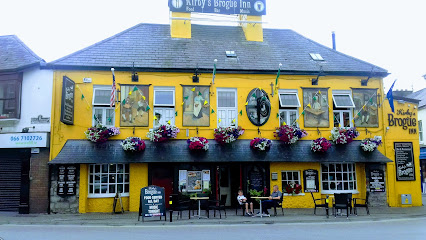
The Grand Hotel
Experience the charm of The Grand Hotel in Tralee, where historic elegance meets modern comfort in the heart of County Kerry.
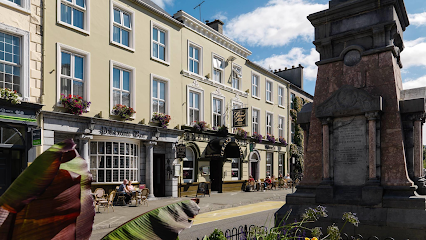
Aqua Dome
Discover the Aqua Dome in Tralee, Co. Kerry - Ireland's largest indoor water park with thrilling slides, relaxing pools, and family fun.
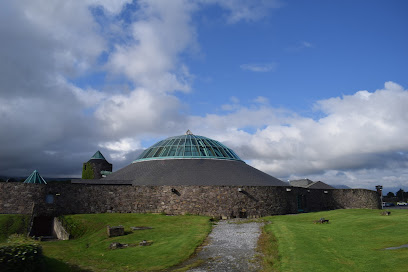
Blennerville Windmill
Explore Blennerville Windmill, a stunning historical landmark in County Kerry, offering breathtaking views and insights into Ireland's milling heritage.
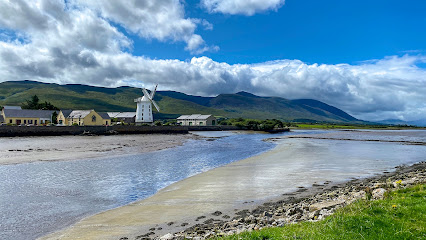
Manor West Hotel
Experience luxury and comfort at Manor West Hotel, your perfect base for exploring the breathtaking landscapes of County Kerry.

Meadowlands Hotel Co. Kerry
Discover the tranquil charm of Meadowlands Hotel in Co. Kerry, a perfect base for exploring Ireland's stunning landscapes and rich culture.

Gallys Bar & Restaurant
Discover the taste of Ireland at Gallys Bar & Restaurant in Co. Kerry, where local flavors meet a welcoming atmosphere.
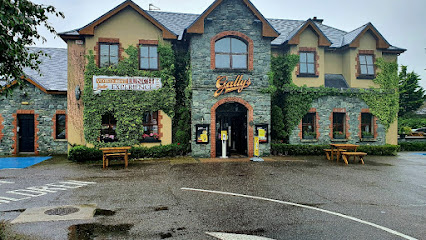
Il Pomo Doro Tralee Restaurant
Experience authentic Italian cuisine in Tralee at Il Pomo Doro, where family-friendly dining meets fine culinary artistry.
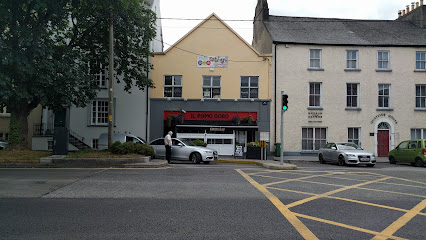
Tralee Bay Wetlands Eco & Activity Park
Explore the stunning Tralee Bay Wetlands Eco & Activity Park, a haven for wildlife, outdoor adventures, and educational experiences in County Kerry.
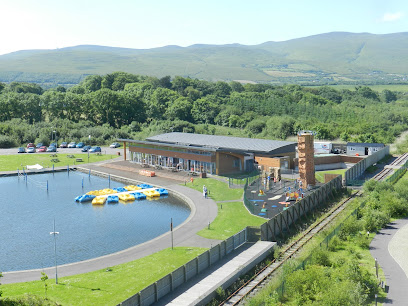
Benners Hotel Tralee
Discover the charm and comfort of Benners Hotel Tralee, offering a cozy stay with a delightful gastropub experience in the heart of County Kerry.

Lana Tralee Asian Street Food
Explore the vibrant flavors of Asia at Lana Tralee Asian Street Food, where delicious street food meets warm hospitality in the heart of Co. Kerry.
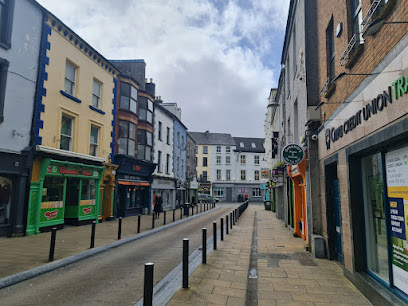
Siamsa Tire
Experience the heart of Irish culture at Siamsa Tire, Tralee's premier performing arts theater showcasing music, dance, and theater.
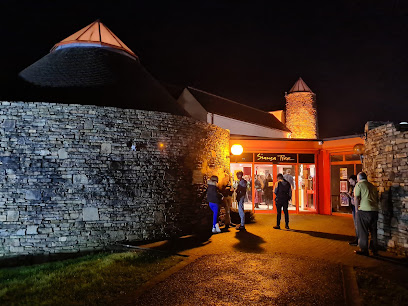
Kerry County Museum
Explore the Kerry County Museum for an unforgettable journey through the rich history and culture of County Kerry, Ireland.
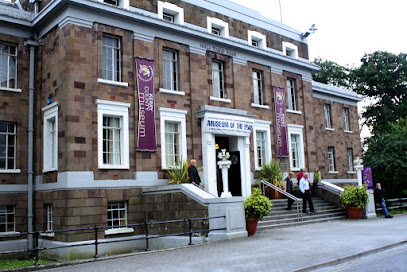
The Bookshelf Tralee
Discover The Bookshelf Tralee, where coffee and literature blend in a cozy café setting, perfect for breakfast or brunch in Co. Kerry.
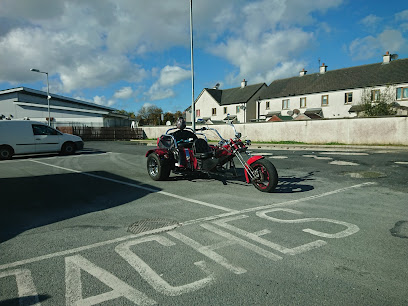
Unmissable attractions to see
Killarney National Park
Explore Killarney National Park: A breathtaking blend of lush landscapes, wildlife, and cultural heritage in County Kerry, Ireland.
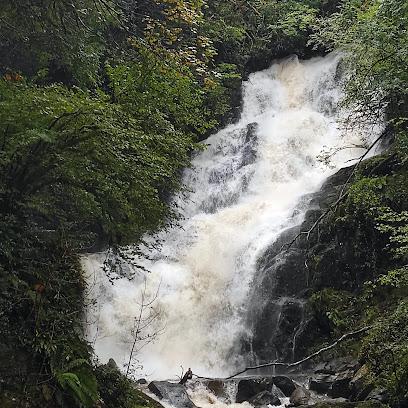
Muckross House
Experience the rich history and stunning landscapes at Muckross House in Killarney National Park, Ireland's iconic Victorian mansion.
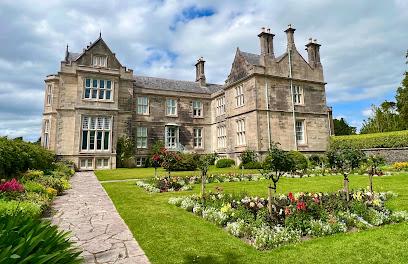
Ross Castle
Explore the enchanting Ross Castle, a historical landmark set against the stunning backdrop of Lough Leane in Killarney, County Kerry.

Torc Waterfall
Experience the breathtaking beauty of Torc Waterfall in Killarney National Park, a serene natural wonder with stunning landscapes and hiking adventures.
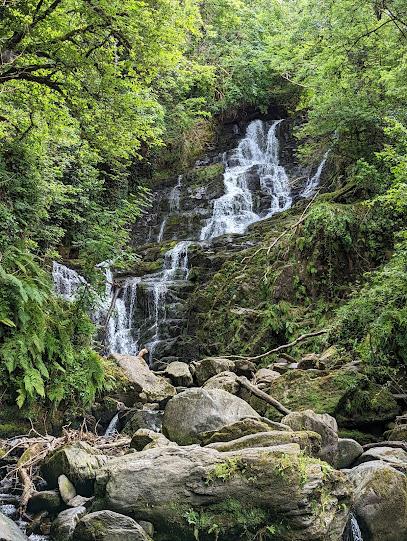
An Chonair / Conor Pass
Experience the breathtaking beauty of Conor Pass in County Kerry, Ireland, where stunning landscapes and rich history await every traveler.
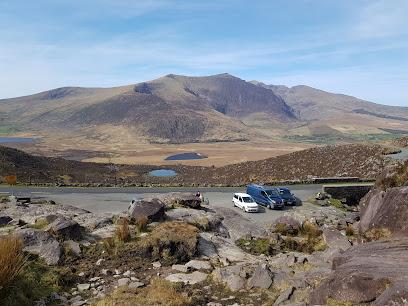
Kate Kearneys Cottage
Experience the essence of Irish culture at Kate Kearney's Cottage, nestled in the stunning Gap of Dunloe, Co. Kerry.
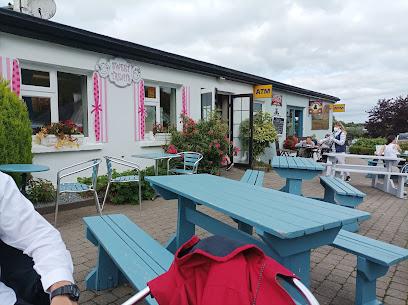
Muckross Abbey
Discover the enchanting Muckross Abbey in County Kerry, a historical gem surrounded by breathtaking landscapes and rich Irish heritage.
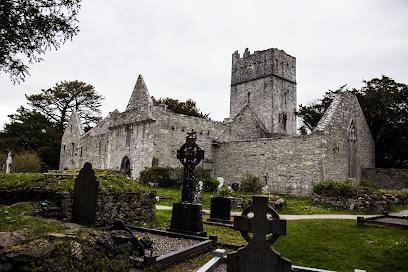
The Shire Bar & Cafe
Experience the vibrant atmosphere of The Shire Bar & Cafe in Killarney, where Irish hospitality meets delicious cuisine and live music.
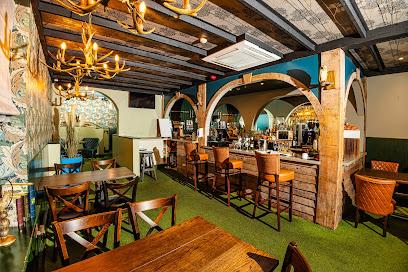
Dingle Dolphin Boat Tours
Discover the wonders of Dingle Bay with Dolphin Boat Tours, where adventure meets the enchanting beauty of Ireland's marine life.
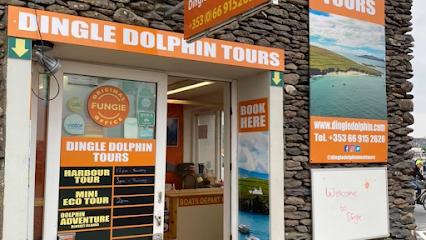
Loop Head Lighthouse
Explore Loop Head Lighthouse, a historic gem on Ireland's Wild Atlantic Way, offering stunning views and a glimpse into maritime history.
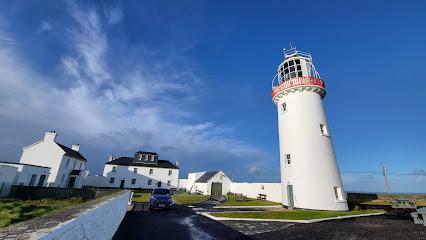
The Kerry Bog Village Museum
Explore the fascinating history of Ireland's boglands at The Kerry Bog Village Museum, a charming open-air museum in Glenbeigh, Co. Kerry.
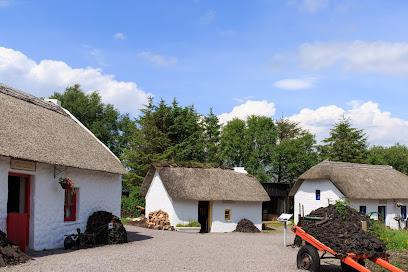
Dingle Peninsula
Explore the breathtaking Dingle Peninsula in County Kerry, Ireland—where stunning landscapes meet rich cultural heritage and unforgettable adventures await.
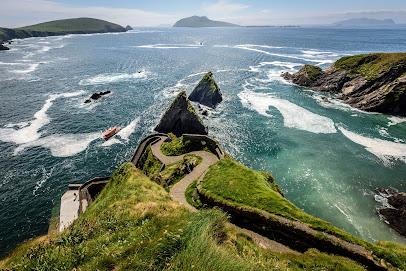
St. Mary’s Cathedral
Explore the enchanting St. Mary’s Cathedral in Killarney, a stunning Gothic masterpiece set amidst beautiful landscapes, steeped in history and tranquility.
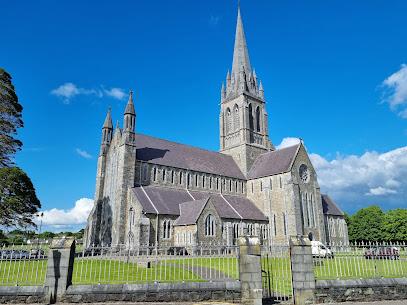
The Taproom at Killarney Brewing & Distilling Co.
Experience Killarney's finest craft brews and delicious pizzas at The Taproom, a perfect blend of taste and tradition in the heart of Ireland.
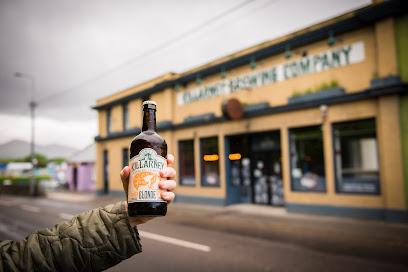
Foxy John's
Discover the charm of Dingle at Foxy John's, a unique Irish pub offering hearty food, local brews, and a vibrant atmosphere.
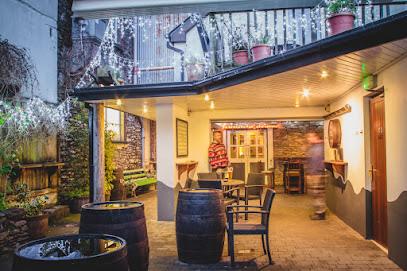
Essential places to dine
Kirbys Brogue Inn
Discover Kirbys Brogue Inn: A vibrant pub and restaurant offering authentic Irish food and drinks in the heart of Tralee.
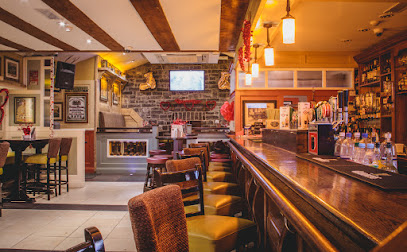
Gallys Bar & Restaurant
Discover Gallys Bar & Restaurant in Tralee: where delectable grilled dishes meet an inviting atmosphere amidst stunning Irish landscapes.
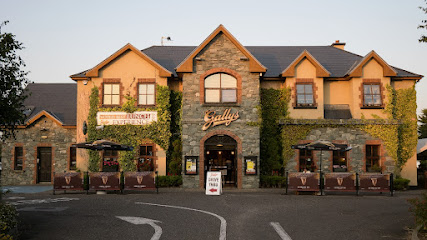
Il Pomo Doro Tralee Restaurant
Experience authentic Italian cuisine at Il Pomo Doro in Tralee – where family-friendly meets fine dining in a cozy Mediterranean setting.
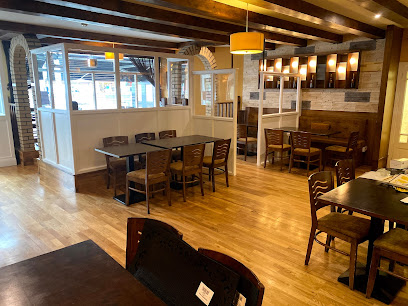
Yummy Cafe Market
Yummy Cafe Market: A Family-Friendly Haven in Tralee Serving Delicious Breakfasts and Lunches in a Cozy Atmosphere.
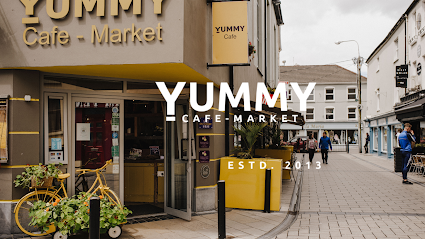
Benners Hotel Tralee
Discover warmth and hospitality at Benners Hotel Tralee – your gateway to exploring County Kerry's stunning landscapes.

Lana Tralee Asian Street Food
Experience authentic Asian street food in Tralee at Lana - where every bite takes you on a flavorful journey!
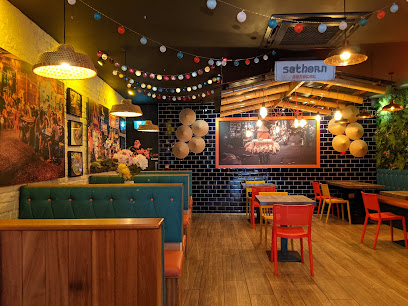
The Oyster Tavern Tralee Co.Kerry
Discover authentic Irish cuisine at The Oyster Tavern in Tralee, where fresh seafood meets warm hospitality in an inviting setting.
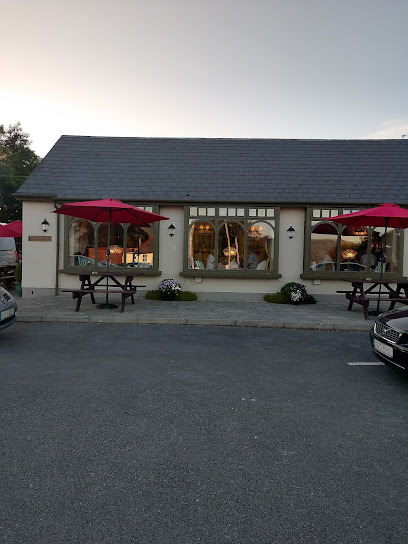
The Shack Restaurant and Takeaway
Experience delightful takeout at The Shack Restaurant in Tralee - perfect for families and gluten-free diners seeking tasty meals.

The Bookshelf Tralee
Discover the charm of The Bookshelf Tralee - your perfect stop for breakfast and coffee in County Kerry.
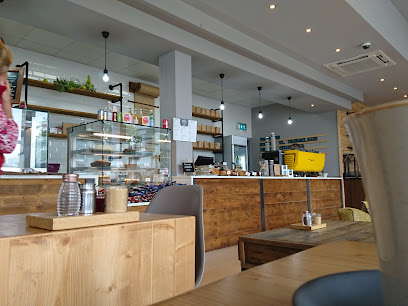
Bella Bia
Experience authentic Italian cuisine at Bella Bia in Tralee - where every dish is crafted with passion and fresh ingredients.
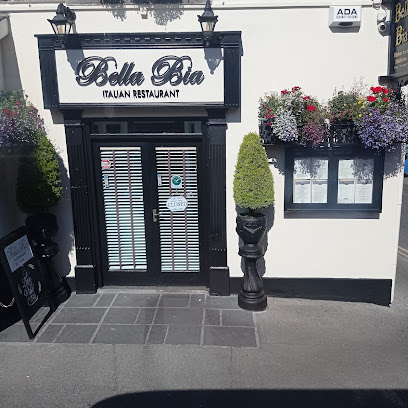
Cassidy's Restaurants
Experience authentic Irish cuisine at Cassidy's Restaurant in Tralee - where tradition meets taste in a warm and welcoming atmosphere.
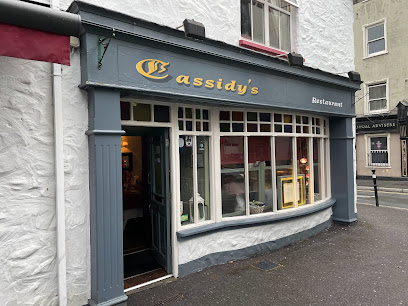
MJ's Diner
Experience the heart of American cuisine at MJ's Diner in Tralee - where every meal feels like home.
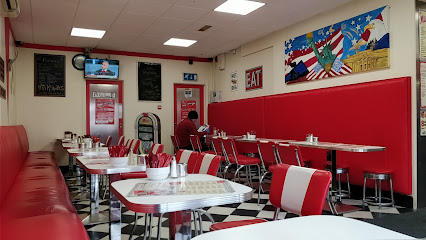
Imperial Hotel Tralee
Discover traditional Irish hospitality at Imperial Hotel Tralee – where comfort meets culture in County Kerry's vibrant town.
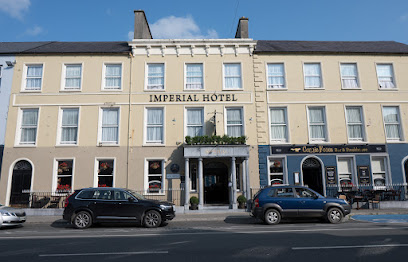
Hillbilly's Tralee
Discover family-friendly dining at Hillbilly's Tralee, where delicious food meets a welcoming atmosphere for all ages.
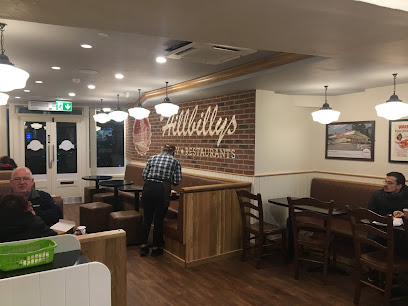
La Scala Restaurant
Experience authentic Italian cuisine at La Scala Restaurant in Tralee, where every meal feels like a trip to Italy.
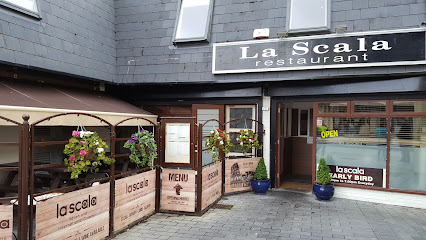
Markets, malls and hidden boutiques
Penneys
Explore trendy and affordable fashion at Penneys Tralee, your ultimate clothing destination in the heart of Co. Kerry.
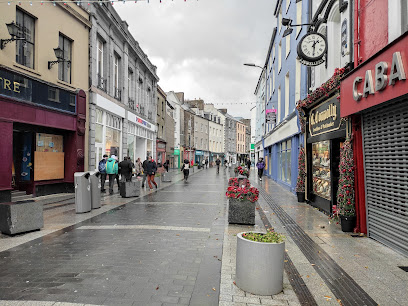
Manor West Shopping Centre
Explore Manor West Shopping Centre in Tralee for a unique blend of shopping and dining experiences in the heart of County Kerry.
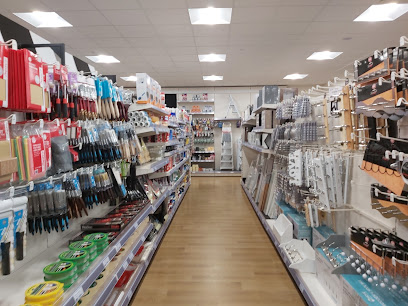
TK Maxx
Explore TK Maxx in Tralee for unbeatable prices on fashion and home goods, perfect for savvy shoppers seeking unique treasures.
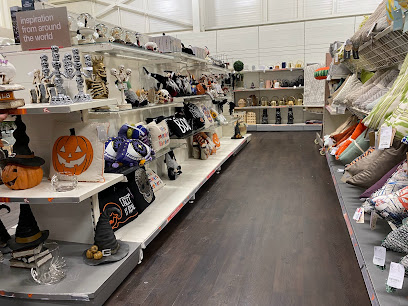
MrPRICE Tralee
Shop smart at MrPRICE Tralee, where unbeatable deals meet a wide variety of quality products perfect for every traveler.
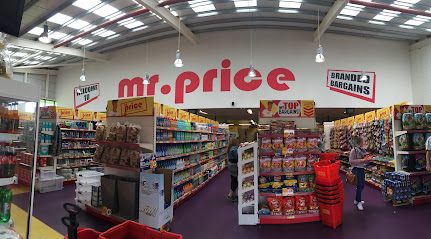
LIDL
Explore LIDL in Tralee for fresh produce, local goods, and unbeatable prices in the heart of County Kerry.
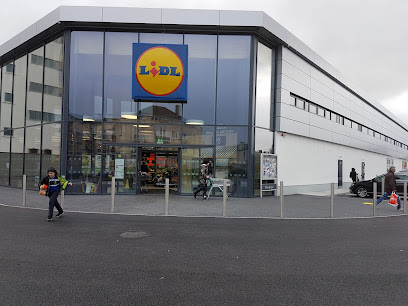
ALDI
Discover budget-friendly shopping at ALDI in Tralee, where quality groceries meet unbeatable prices for a delightful travel experience.
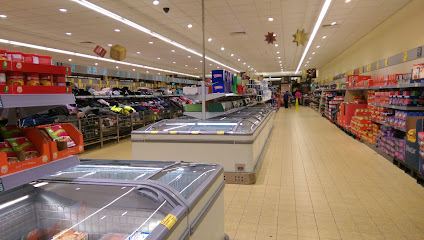
Dunnes Stores
Explore Dunnes Stores in Tralee for a unique blend of clothing, groceries, and local products that cater to every shopper's needs.
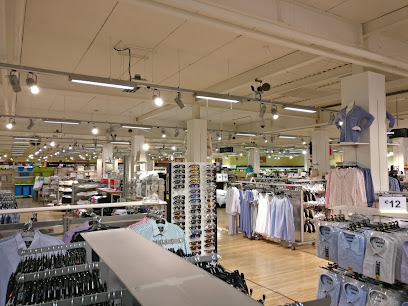
Home Store + More
Explore a diverse range of stylish home goods in Tralee, Ireland, perfect for enhancing your living space with local charm.
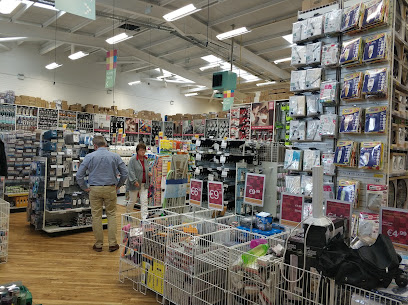
Garvey 's SuperValu Tralee
Explore Garvey's SuperValu Tralee, your go-to destination for fresh produce, local delicacies, and a taste of Irish hospitality.
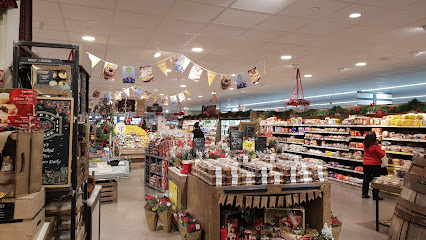
The Range, Tralee
Explore The Range in Tralee for an extensive selection of home goods, art supplies, and more in a welcoming retail environment.
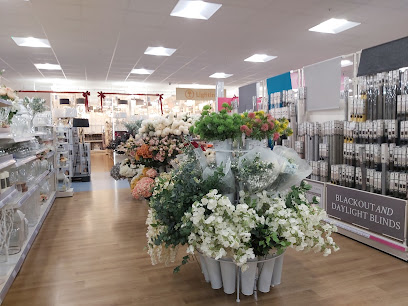
Shaws Department Stores Tralee
Explore Shaws Department Stores Tralee for a unique shopping experience filled with quality goods and exceptional service in the heart of Kerry.
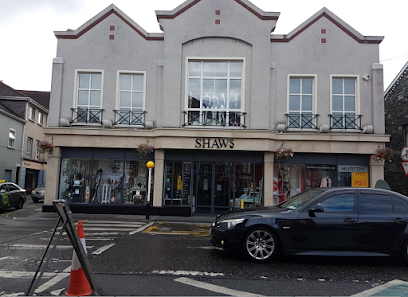
Castle Off Licence
Discover the finest selection of wines and spirits at Castle Off Licence, a must-visit destination for every wine enthusiast in Tralee, Co. Kerry.
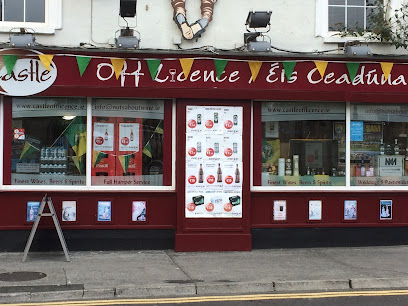
P Commane Book Shop
Explore a world of rare and second-hand books at P Commane Book Shop in Tralee, where literary treasures await every visitor.
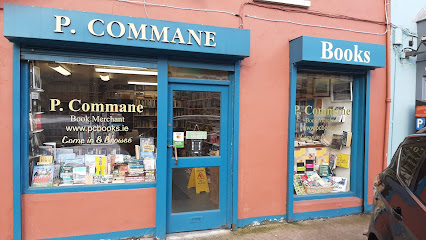
Rose & Crown Boutique
Explore stylish clothing and unique fashion finds at Rose & Crown Boutique in Tralee, the heart of County Kerry.
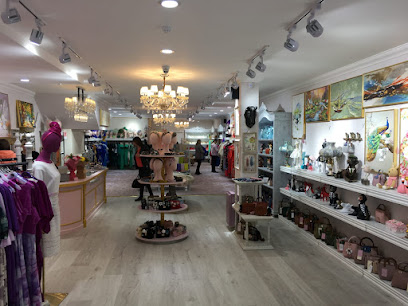
Celsius Menswear
Explore the best of menswear at Celsius Menswear in Tralee, where style meets quality and exceptional service.
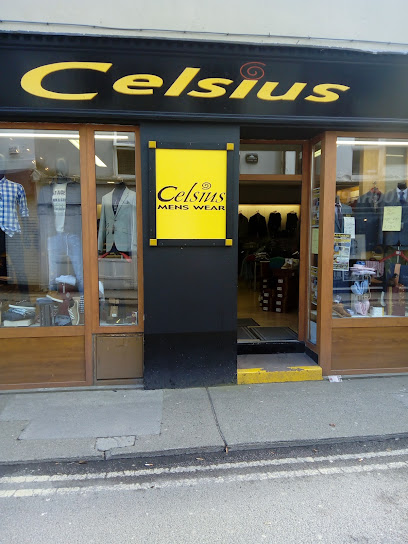
Essential bars & hidden hideouts
Kirbys Brogue Inn
Discover the heart of Tralee at Kirbys Brogue Inn, where delicious Irish cuisine meets warm hospitality in a lively atmosphere.
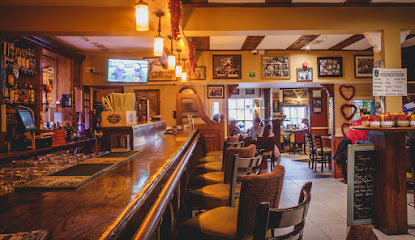
Gallys Bar & Restaurant
Experience the best of Irish cuisine at Gallys Bar & Restaurant in Co. Kerry, where delicious food meets a lively bar atmosphere.
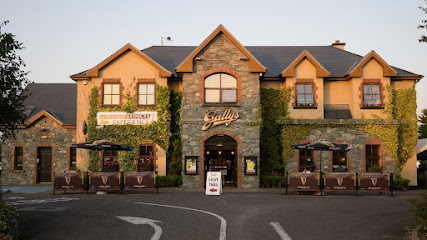
Sean Ogs Bar & B&B
Experience authentic Irish hospitality at Sean Ogs Bar & B&B, a must-visit bar and accommodation in the heart of Tralee, County Kerry.
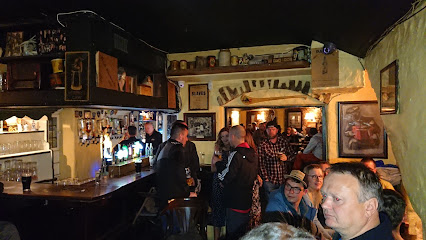
Baily's Corner
Experience the vibrant atmosphere of Baily's Corner, a cozy bar in Tralee offering a delightful drink selection and live music events.
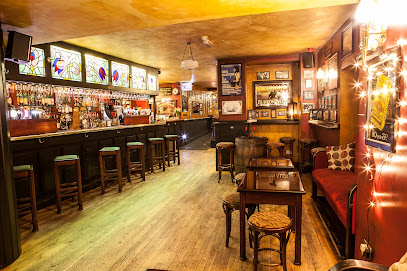
The Blasket Bar
Experience the vibrant atmosphere, exquisite cocktails, and live music at The Blasket Bar in Tralee, Co. Kerry.
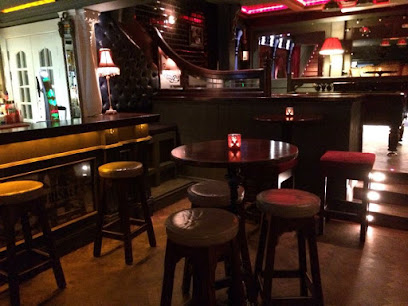
Paddy Mac's Pub
Discover the vibrant atmosphere of Paddy Mac's Pub in Tralee, Co. Kerry – a true gem for locals and travelers alike, blending great drinks with live music.
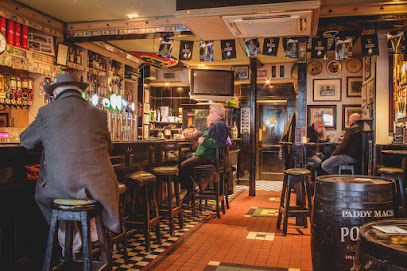
The Greyhound Bar
Experience the charm of The Greyhound Bar in Tralee, where traditional Irish hospitality meets a modern twist in a vibrant atmosphere.
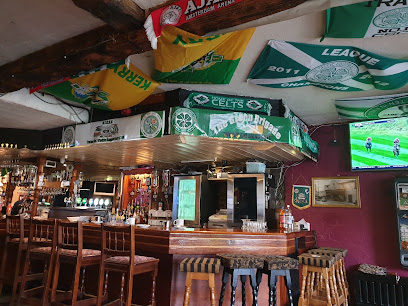
J TURNERS BAR
Discover the vibrant atmosphere and authentic Irish cuisine at J Turners Bar in Tralee, Co. Kerry—a must-visit for every traveler.
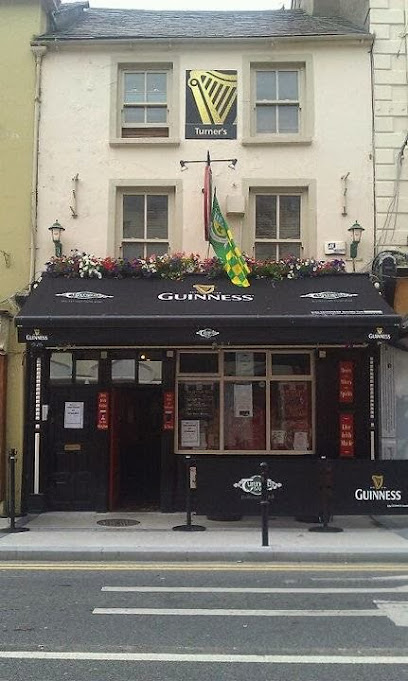
Hennessys Bar
Experience the heart of Tralee at Hennessys Bar, where local charm and vibrant atmosphere meet for an unforgettable night out.
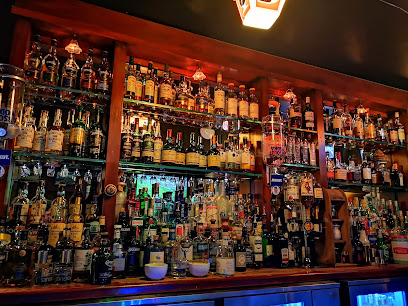
Bettys Bar
Discover Bettys Bar, Tralee's favorite spot for local brews and vibrant atmosphere, perfect for unwinding after a day of sightseeing.
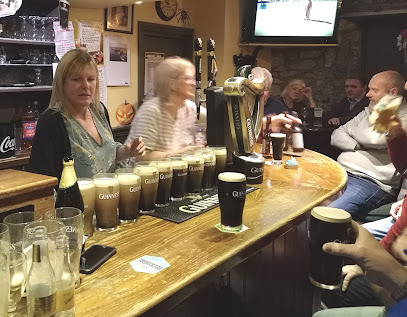
The Castle Bar
Experience the warmth of Irish hospitality at The Castle Bar in Tralee, where local culture and delicious cuisine come together in a cozy setting.
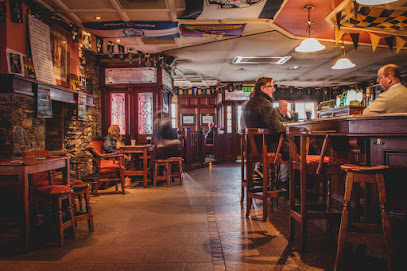
An Cearnóg bar
Discover the enchanting atmosphere and vibrant spirit of An Cearnóg Bar in Tralee, where traditional Irish hospitality meets contemporary charm.
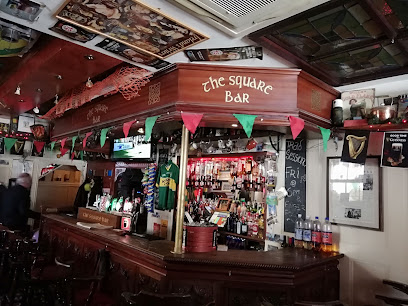
The Munster Bar
Experience the heart of Irish hospitality at The Munster Bar in Tralee, where local brews and warm welcomes await every visitor.
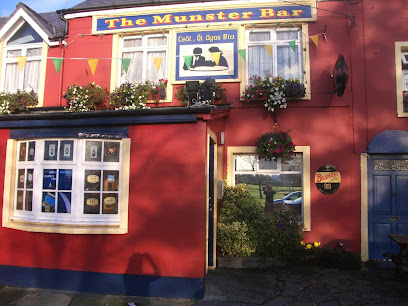
The huddle bar
Discover the vibrant atmosphere and authentic Irish charm at The Huddle Bar in Tralee, the perfect spot for drinks and local flavors.
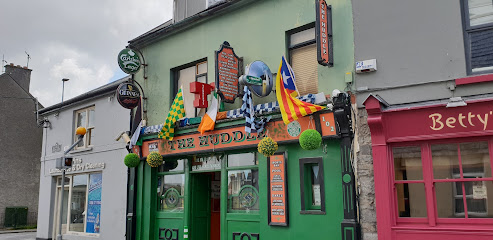
Local Phrases
-
- HelloDia duit
[dee-uh gwitch] - GoodbyeSlán
[slawn] - YesTá
[taw] - NoNíl
[neel] - Please/You're welcomeLe do thoil
[leh duh hull] - Thank youGo raibh maith agat
[gur rev mah agut] - Excuse me/SorryFáilte
[fawl-cheh] - How are you?Conas atá tú?
[kun-uss ah-taw too] - Fine. And you?Tá mé go maith. Agus tú?
[taw may guh mah. ah-gus too] - Do you speak English?An bhfuil Gaeilge agat?
[un will gayl-guh ah-gut] - I don't understandNí thuigim
[nee hug-im]
- HelloDia duit
-
- I'd like to see the menu, pleaseBa mhaith liom an mianú
[bah wah lyum un meen-oo] - I don't eat meatNí ithim feoil
[nee ih-him foh-il] - Cheers!Sláinte!
[slawn-cheh] - I would like to pay, pleaseBa mhaith liom íoc, le do thoil
[bah wah lyum eek, leh duh hull]
- I'd like to see the menu, pleaseBa mhaith liom an mianú
-
- Help!Cabhair!
[kah-wir] - Go away!Imigh uaim!
[ih-mee uhm] - Call the Police!Glan an Garda!
[glawn un gahrd-ah] - Call a doctor!Glan an dochtúir!
[glawn un duhk-too-ir] - I'm lostTáim caillte
[tawm kahl-cheh] - I'm illTáim tinn
[tawm chin]
- Help!Cabhair!
-
- I'd like to buy...Ba mhaith liom ceannach...
[bah wah lyum kyawn-ukh] - I'm just lookingNíl ach ag féachaint
[neel okh egg fay-ukh-ent] - How much is it?Cén chaoi is é?
[kayn kwee is ay] - That's too expensiveTá sé sin ró-dháiríre
[taw shay shin roh-gaw-ree-reh] - Can you lower the price?An féidir leat an praghas a laghdú?
[un fay-djir lat un prah-gus ah lah-goo]
- I'd like to buy...Ba mhaith liom ceannach...
-
- What time is it?Cén t-am é?
[kayn tahm ay] - It's one o'clockTá sé a haon
[taw shay ah hayn] - Half past (10)Leathuair tar éis (10)
[lah-hoo-ir tar aysh (10)] - MorningMaidin
[mah-jin] - AfternoonTráthnóna
[traw-noh-nah] - EveningTráthnóna
[traw-noh-nah] - YesterdayInné
[inn-ay] - TodayInniu
[in-yoo] - TomorrowAmárach
[ah-maw-rakh] - 1Aon
[ayn] - 2Dó
[doh] - 3Trí
[tree] - 4Ceathair
[cah-her] - 5Cúig
[koo-ig] - 6Seisear
[shesh-ar] - 7Seacht
[shawkht] - 8Ocht
[ukht] - 9Naoi
[nee] - 10Deich
[deh-ukh]
- What time is it?Cén t-am é?
-
- Where's a/the...?Cá bhfuil an...?
[kaw will un] - What's the address?Cad é an seoladh?
[kahd ay un sho-lah] - Can you show me (on the map)?An féidir leat léiríú dom (ar an léarscáil)?
[un fay-djir lat lay-ree-oo dum (ar un layr-skawl)] - When's the next (bus)?Cathain atá an chéad (bus) eile?
[kah-hin ah-taw un khay-ad (bus) el-eh] - A ticket (to ....)Ticead (go dtí ....)
[tick-ad (guh dee)]
- Where's a/the...?Cá bhfuil an...?
History of Tralee
-
Tralee, located in County Kerry, Ireland, was founded in the 13th century by the Anglo-Normans. The town's name in Irish, 'Trá Lí,' translates to 'Strand of the Lee,' referring to the River Lee that flows through it. Tralee quickly became an important administrative and judicial center for the region, with its early growth driven by its strategic location and fertile lands.
-
In the late 16th century, Tralee was impacted by the Desmond Rebellions, a series of uprisings led by the Fitzgeralds of Desmond against English rule. The town's castle and its inhabitants faced significant turmoil during these conflicts. The rebellions eventually ended with the defeat of the Fitzgeralds and the destruction of many local settlements, including parts of Tralee.
-
During the Irish Confederate Wars in the mid-17th century, Tralee was besieged by the forces of the English Parliament. The town's strategic importance made it a target, and the siege led to significant destruction and hardship for its residents. The town's castle was once again damaged, and many historical records from this period were lost.
-
The mid-19th century Great Famine had a devastating impact on Tralee, as it did on much of Ireland. The town saw a significant decline in population due to death and emigration. Tralee Workhouse, established to help the poor and starving, became overcrowded and a poignant symbol of the era's suffering. The famine left an indelible mark on the town's history and demographics.
-
In 1867, Tralee was a focal point during the Fenian Rising, an unsuccessful rebellion against British rule in Ireland. Local Fenians, part of the Irish Republican Brotherhood, planned attacks and demonstrations. Though the uprising was quickly suppressed, it highlighted the growing nationalist sentiment in the region and left a lasting legacy in Tralee's history.
-
Established in 1959, the Rose of Tralee International Festival is one of Ireland's most famous cultural events. Named after the 19th-century ballad 'The Rose of Tralee,' the festival celebrates Irish heritage and global connections. Contestants, known as Roses, come from Irish communities worldwide to participate in cultural activities, parades, and entertainment, making it a vibrant and essential part of Tralee's modern identity.
-
Tralee boasts a rich architectural heritage, with landmarks such as the Ashe Memorial Hall, built in 1928 and now housing the Kerry County Museum. St. John's Church, a Gothic Revival structure, and the Georgian architecture of Denny Street reflect the town's historical evolution. These buildings offer a window into Tralee's past and its development over centuries.
-
Today, Tralee is a bustling town known for its blend of historical charm and modern amenities. The town has grown into a commercial and cultural hub in County Kerry, with attractions like the Siamsa Tíre National Folk Theatre and Tralee Bay Wetlands Centre. Tralee continues to honor its rich history while embracing contemporary developments, making it a fascinating destination for visitors.
Tralee Essentials
-
Tralee is located in County Kerry, Ireland. The nearest airport is Kerry Airport (Farranfore), approximately 20 kilometers away. From the airport, you can take a taxi or bus to Tralee. Alternatively, you can fly into Shannon Airport or Cork Airport, both about a two-hour drive from Tralee. Tralee is also accessible by train from major cities like Dublin and Cork, with regular services provided by Irish Rail. Bus Éireann operates extensive bus services connecting Tralee to other parts of Ireland.
-
Tralee is a small town, and many attractions are within walking distance. For longer journeys, local taxis are readily available and can be hailed on the street or booked in advance. The local bus service, operated by Bus Éireann, connects Tralee with nearby towns and villages. Additionally, renting a car is a convenient option for exploring the surrounding scenic areas and the famous Ring of Kerry.
-
The official currency in Ireland is the Euro (€). Credit and debit cards are widely accepted in hotels, restaurants, and shops in Tralee. ATMs are plentiful throughout the town, so withdrawing cash is convenient. Contactless payments are also commonly accepted. However, it is advisable to carry some cash for smaller establishments or rural areas where card payments might not be accepted.
-
Tralee is generally a safe destination for tourists. However, like any other place, it is wise to take standard safety precautions. Avoid walking alone late at night in poorly lit areas and keep an eye on your belongings in crowded places. There are no specific high-crime areas targeting tourists in Tralee, but it is always best to stay vigilant and aware of your surroundings.
-
In case of emergency, dial 999 or 112 for immediate assistance from police, fire, or medical services. The University Hospital Kerry is located in Tralee and provides comprehensive medical care. Pharmacies are available throughout the town for minor health issues. It is recommended to have travel insurance that covers medical emergencies.
-
Fashion: Do dress in layers as the weather can be unpredictable. Bring a good raincoat and comfortable walking shoes. Religion: Do respect local customs and traditions. While Ireland is predominantly Catholic, religious practices are generally private, and tolerance is high. Public Transport: Do have the exact fare ready for buses as drivers may not provide change. Don’t eat or drink on public transport. Greetings: Do greet people with a friendly 'hello' or 'hi'. A handshake is common when meeting someone for the first time. Eating & Drinking: Do try local specialties like seafood and traditional Irish dishes. Don’t forget to tip in restaurants—around 10% is customary.
-
To experience Tralee like a local, visit the Tralee Farmers' Market held every Saturday where you can buy fresh produce and local crafts. Engage with the locals, who are known for their friendliness and hospitality. Don’t miss the annual Rose of Tralee International Festival if you visit in August. For a unique experience, take a walk or cycle along the Tralee Bay Wetlands and Nature Reserve. Additionally, exploring the nearby Dingle Peninsula offers stunning landscapes and a taste of traditional Irish culture.
Trending Landmark in Tralee
-
Ballygarry Estate Hotel and Spa
-
Kirbys Brogue Inn
-
The Grand Hotel
-
Aqua Dome
-
Blennerville Windmill
-
Manor West Hotel
-
Meadowlands Hotel Co. Kerry
-
Gallys Bar & Restaurant
-
Il Pomo Doro Tralee Restaurant
-
Tralee Bay Wetlands Eco & Activity Park
-
Benners Hotel Tralee
-
Lana Tralee Asian Street Food
-
Siamsa Tire
-
Kerry County Museum
-
The Bookshelf Tralee
Nearby Cities to Tralee
-
Things To Do in Killarney
-
Things To Do in Dingle
-
Things To Do in Ennis
-
Things To Do in Limerick
-
Things To Do in Cork
-
Things To Do in Kinsale
-
Things To Do in Salthill
-
Things To Do in Galway
-
Things To Do in Westport
-
Things To Do in Kilkenny
-
Things To Do in Athlone
-
Things To Do in Waterford
-
Things To Do in Wexford
-
Things To Do in Sligo
-
Things To Do in Dublin










